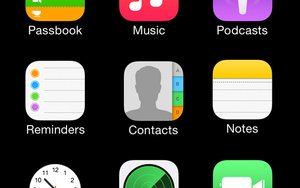 In a blow to Yelp, a judge has refused to throw out a class-action alleging that the company wrongly uploaded iPhone users' address books.
In a blow to Yelp, a judge has refused to throw out a class-action alleging that the company wrongly uploaded iPhone users' address books.
U.S.
District Court Judge Jon Tigar in the Northern District of California ruled late last week that Yelp wasn't entitled to summary judgment in the 4-year-old privacy dispute because the case presents
unresolved factual questions.
The battle stems from reports in 2012 of surreptitious address-book uploads. Initially, developers accused mobile social networks Path and Hipster of accessing
and storing users' address books without their knowledge. The allegations against Path resulted in charges by the Federal Trade Commission, which the company settled by agreeing to create a
comprehensive privacy policy.
advertisement
advertisement
Soon after reports about Path and Hipster surfaced, other mobile companies -- including Twitter and Yelp -- were accused of wrongly uploading users' address
books. Unlike Path, those other developers reportedly asked people for permission to access their address books, in order to help them connect with friends who also used the service. But Yelp and the
other developers allegedly didn't specify that they would keep the data in their servers
iPhone user Marc Opperman, and other consumers, sued Apple and more than a dozen developers over the
allegations. The consumers argued that address-book uploads amount to "intrusion upon seclusion," which is actionable in California.
Some of the developers recently settled the lawsuits,
according to court records. But others including Foursquare, Instagram, Kik, Twitter and Yelp are still fighting the case.
The ruling issued by Tigar late last week deals only with Yelp.
The review company had argued that the consumers shouldn't be able to proceed because they agreed to allow the company to access their contacts. But the consumers successfully countered that they
only allowed Yelp to "access" or "look at" their contacts, and not to "upload" the data.
Tigar ruled that the consumers successfully raised questions about the scope of their consent. "There
is a material factual dispute as to whether Yelp's in-app user prompt obtained effective consent to upload the address book data to its servers," he wrote in a ruling issued late last
week.
Tigar added that Yelp didn't "explicitly disclose" that it would upload the address books. "The text of the disclosure during the class period simply told users that the feature would
“[f]ind friends on Yelp using your Contacts” or “look at your contacts to find friends," Tigar wrote. "The Plaintiffs have produced evidence suggesting that, based on these
disclosures, they expected a matching process that would take place locally on their phone, not on Yelp’s servers."
The judge previously allowed the consumers to proceed as a class
against Apple. The device manufacturer recently asked an appellate court for
permission to appeal that ruling.